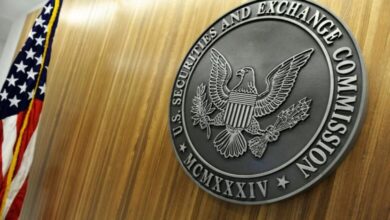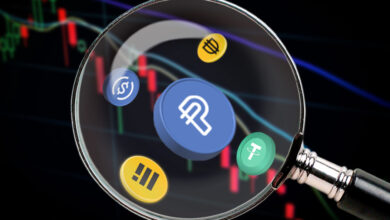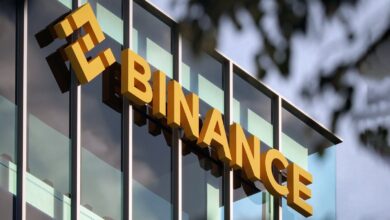IBM Announces Major Blockchain Collaboration to Address Food Safety Worldwide

A group of leading companies across the global food supply chain announced a major blockchain collaboration with IBM (NYSE: IBM) intended to further strengthen consumer confidence in the global food system. The consortium includes Dole, Driscoll’s, Golden State Foods, Kroger, McCormick and Company, McLane Company, Nestlé, Tyson Foods, Unilever and Walmart, who will work with IBM to identify new areas where the global supply chain can benefit from blockchain.
Every year, one-in-ten people fall ill – and 400,000 die – due to contaminated food.* Many of the critical issues impacting food safety such as cross-contamination, the spread of food-borne illness, unnecessary waste and the economic burden of recalls are magnified by lack of access to information and traceability. It can take weeks to identify the precise point of contamination, causing further illness, lost revenue and wasted product. For example, it took more than two months to identify the farm source of contamination in a recent incidence of salmonella in papayas.**
Blockchain is ideally suited to help address these challenges because it establishes a trusted environment for all transactions. In the case of the global food supply chain, all participants -growers, suppliers, processors, distributors, retailers, regulators and consumers – can gain permissioned access to known and trusted information regarding the origin and state of food for their transactions. This can enable food providers and other members of the ecosystem to use a blockchain network to trace contaminated product to its source in a short amount of time to ensure safe removal from store shelves and stem the spread of illnesses.
Dole, Driscoll’s, Golden State Foods, Kroger, McCormick and Company, McLane Company, Nestlé, Tyson Foods, Unilever, Walmart and others are now coming together with IBM to further champion blockchain as an enabling technology for the food sector. Together they will help identify and prioritize new areas where blockchain can benefit food ecosystems and inform new IBM solutions. This work will draw on multiple IBM pilots and production networks in related areas that successfully demonstrate ways in which blockchain can positively impact global food traceability.
“Unlike any technology before it, blockchain is transforming the way like-minded organizations come together and enabling a new level of trust based on a single view of the truth,” said Marie Wieck, general manager, IBM Blockchain. “Our work with organizations across the food ecosystem, as well as IBM’s new platform, will further unleash the vast potential of this exciting technology, making it faster for organizations of all sizes and in all industries to move from concept to production to improve the way business gets done.”
In parallel trials in China and the U.S., IBM and Walmart recently demonstrated that blockchain can be used to track a product from the farm through every stage of the supply chain, right to the retail shelf, in seconds instead of days or weeks.
These trials also demonstrated that stakeholders throughout the global food supply chain view food safety as a collaborative issue, rather than a competitive one, and are willing to work together to improve the food system for everyone.
“As an advocate for greater transparency in the food system to benefit customers, Walmart looks forward to expanding on our initial work by collaborating with others to accelerate exploration on how this technology can be used as a more effective food traceability and food safety tool,” said Frank Yiannas, vice president, food safety, Walmart. “Blockchain technology enables a new era of end-to-end transparency in the global food system – equivalent to shining a light on food ecosystem participants that will further promote responsible actions and behaviors. It also allows all participants to share information rapidly and with confidence across a strong trusted network. This is critical to ensuring that the global food system remains safe for all.”
“IBM has deep experience and a commitment to business processing and security needs, which are exactly the skill sets needed to bring blockchain to full maturity for food safety and all associated transactions,” said Guilda Javaheri, chief technology officer. As a customer and partner with IBM for more than forty years, Golden State Foods is pleased to collaborate with IBM and this group of trusted food companies.”
“Safety is a key value for Kroger, and our partnership with IBM positions us to explore and test blockchain technology as a solution for enhanced food safety across our business,” said Howard Popoola, Kroger’s vice president of Corporate Food Technology and Regulatory Compliance. “Food safety is a universal priority for food retailers and companies. It’s not a competitive advantage; it benefits our customers to have greater transparency and traceability in the supply chain.”
“We’re excited about the possibilities that come with this technology and are glad to collaborate with IBM and others,” said Scott Stillwell, Ph.D., senior vice president of food safety and quality assurance for Tyson Foods. “Producing safe food is critical to our business; it appears blockchain can help provide trust not only about the origin of food, but also about how that food moved through the supply chain.”





